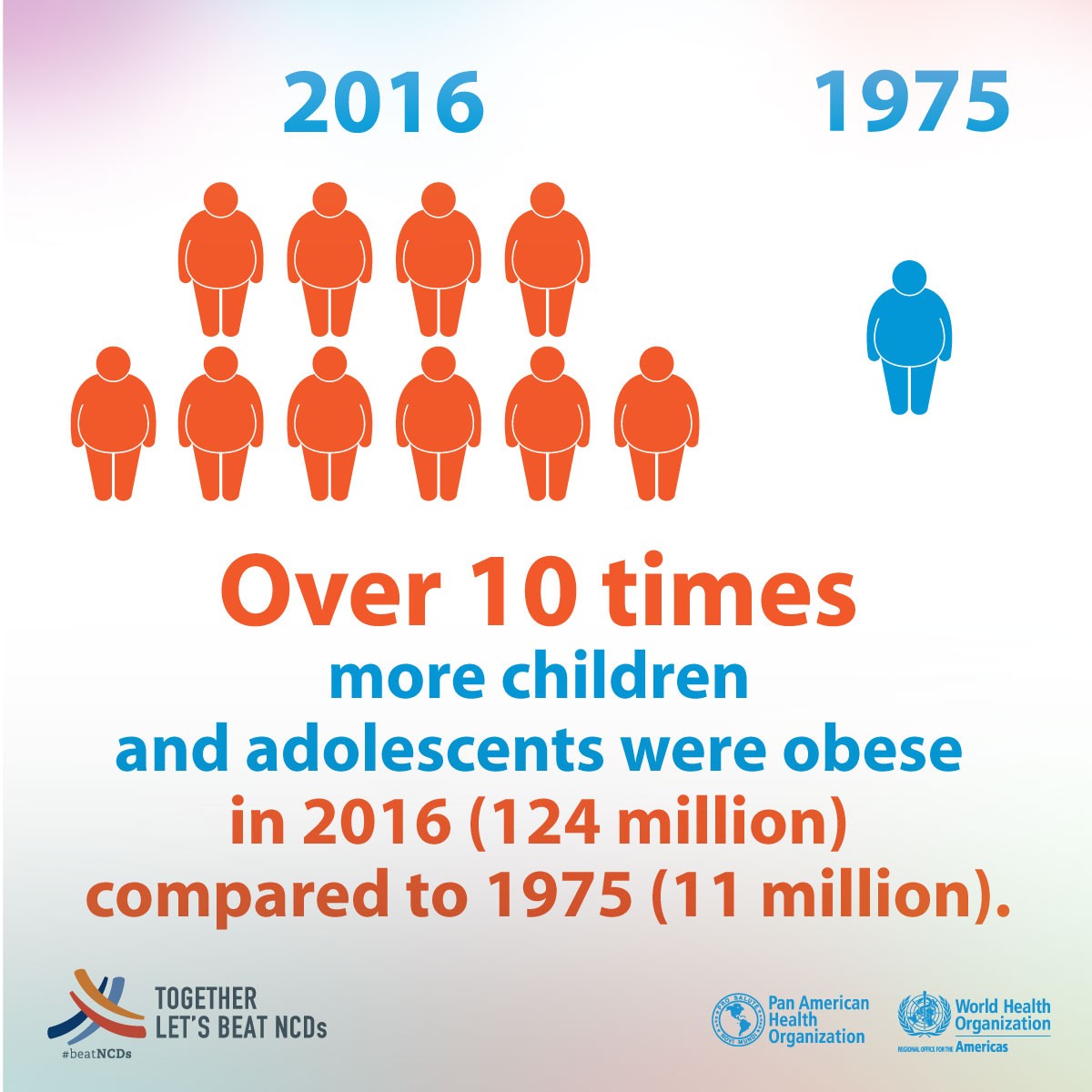ECOSOC at 80: Renewing Multilateralism in an Age of Global Uncertainty
On 23 January, the United Nations Economic and Social Council (ECOSOC) convened a commemorative session…
Obesity is a disease. According to the World Health Organisation, obesity is ‘abnormal or excessive fat accumulation that presents a risk to health’. It can be measured in a number of ways, but the most common is ‘BMI’ (Body Mass Index), using your height and weight to work out if your weight is healthy. Additional measurements, such as your waist to height ratio can also be used.
Currently, 800 people around the world are estimated to be living with obesity. There are many factors that can put people at higher risk of developing obesity, including biology, genes, mental health, access to healthcare and exposure to ultra-processed, unhealthy foods. Obesity is not due to a lack of will power. Unfortunately, obesity also increases the risk of developing other diseases such as some cancers, heart disease, and diabetes. In many countries, people who are obese are stigmatized and made to feel as though it is their own fault. This only compounds the problem and makes it harder for obese people to shed their weight. Obesity is often driven by forces outside of a person’s control. This includes biological, genetic and environmental factors. A person’s biology and genes can put them at greater risk. Our physical environment can impact our access to healthy food, suitable medical care and opportunities for a healthy, active life. Our environment can also affect our mental and emotional health, which in turn impact obesity
higher risk of developing obesity, including biology, genes, mental health, access to healthcare and exposure to ultra-processed, unhealthy foods. Obesity is not due to a lack of will power. Unfortunately, obesity also increases the risk of developing other diseases such as some cancers, heart disease, and diabetes. In many countries, people who are obese are stigmatized and made to feel as though it is their own fault. This only compounds the problem and makes it harder for obese people to shed their weight. Obesity is often driven by forces outside of a person’s control. This includes biological, genetic and environmental factors. A person’s biology and genes can put them at greater risk. Our physical environment can impact our access to healthy food, suitable medical care and opportunities for a healthy, active life. Our environment can also affect our mental and emotional health, which in turn impact obesity
Obesity is rising fastest in countries with lower incomes. Many of these countries have to address both obesity and under-nutrition at the same time. Obesity is especially prevalent in poorer and more vulnerable communities. This dispels the myth that obesity is a disease of the rich. Alarmingly, childhood obesity has nearly doubled every 10 years. Childhood obesity can be prevented and treated. Treating obesity is not only about the weight but about improving overall health. If nothing is done, childhood obesity may increase by 60% in the next decade, reaching 250 million by 2030. With the current pandemic, this is a major health issue as obese people are twice as likely to be hospitalized. By 2025, obesity-related medical consequences will cost over $1 trillion.
Emerging is proud to work, on behalf of the Prairie Oat Growers of Canada (POGA), on promoting healthy diets. Through the project Avena Canadiense, Emerging and POGA promote the consumption of oats especially in Mexico where obesity rates are high. Oats have many nutritional benefits, in particular for weight management, diabetes and cardiovascular prevention. Oats are highly nutritious and can provide benefits for all members of the population. As we celebrate World Obesity Day this March 4, we encourage everyone to eat healthy and stay healthy.
Through the project Avena Canadiense, Emerging and POGA promote the consumption of oats especially in Mexico where obesity rates are high. Oats have many nutritional benefits, in particular for weight management, diabetes and cardiovascular prevention. Oats are highly nutritious and can provide benefits for all members of the population. As we celebrate World Obesity Day this March 4, we encourage everyone to eat healthy and stay healthy.